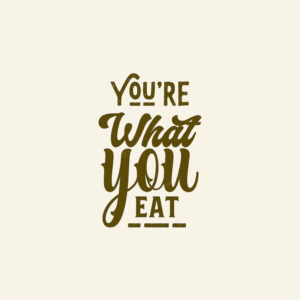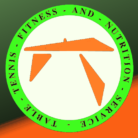
“You are what your eat”
It was not that long ago that I realised how big an impact food and nutrition have on sports performance. I decided it was something I wanted to learn more about, not only so that I could pass my knowledge onto others but also so that I myself could become more aware of what I was eating and drinking and what impact it was having not only on my table tennis but also on my daily life and that of my family. I took up a Business Diploma Course in Sports Nutrition and more recently attended numerous webinars on the subject. This is an area of sport that is growing in popularity as athletes and coaches start to understand the massive role that nutrition plays on performance and the ability to enhance and recover from activity. But what exactly is sports nutrition and where did it all begin?
The first things that most people think of when they think of Sports Nutrition are body builders, protein shakes and supplements. A lot more people other than just body builders can benefit from sports nutrition in their daily lives however. Too many people are completely unaware of how much it could help them solve a lot of persistant problems such as fatigue, mental fog and bad digestion. This situation is changing however as more and more people look for nutritional guidance to enhance their performances.
Nutrition is a branch of science that deals with the relationship between the nutrients in food and the human body. The study of nutrition is essentially the study of ways a food item affects the body’s health. Every cell in your body is constantly being repaired and replaced and the material needed to do this comes from your food so it is true when they say “you are what you eat”.
Two of the most popular diets at the moment are the Atkins and Vegan diets, below we will explore their merits and demerits:
Firstly the Atkins diet, so what is it? This is essentially a high fat, low carbohydrate diet that focuses on controlling the amount of insulin in the body through low-carb intake. People on the Atkins diet reduce their intake of carbohydrates substantially, focusing on eating as much protein and fat as they like. The point of the diet is to force the body to burn stored fat as a fuel source through a mechanism called Ketosis in an effort to aid weight loss and encourage disease prevention. So what are its Pros & Cons? Well it is proven to aid weight loss and prevent health conditions such as metabolic syndrome, diabetes, high blood pressure and cardiovascular disease if followed strictly for over 12 months in comparison to other diets, however it is not that palatable and generally hard to stick to for long periods. It has been reported to have side affects such as headaches, nausea etc during the bodies changeover from burning glucose to ketones for energy and has been linked to the formation of Kidney stones. So what type of sports person would benefit from this diet? Typically any activity that requires slow release of energy over long periods such as long distance runners and endurance athletes would generally do well on this diet.
So let’s now look at the Vegan diet. It contains only plants (such as vegetables, grains, legumes, nuts and fruits) and foods made from plants. Vegans exclude all animal products from their diets, including meat, dairy products, fish, eggs and any byproducts or foods containing an ingredient from animal origin. There are numerous versions of these diets and many people choose to eat this way for ethical, environmental, or health reasons. So what are the Pros & Cons of this diet? Vegan diets seem very effective at helping people loose weight. This may be due to the tendancy of participants to reduce the number of calories consumed, as food generally contains higher fiber content, making you feel fuller for longer. Participants also seem to benefit from lower blood sugar levels, higher insulin sensitivity and a lower risk of developing type 2 diabetes than non-vegans. It also seems beneficial in avoiding heart disease. This could be due in part to the high fibre content which may blunt the blood sugar response. Followers however need to be careful to ensure they get the necessary amounts of essential nutrients, such as calcium, iron and vitamin B12, as the richest source of these are usually found in animal products. They also need to ensure they get enough vitamin D and Omega-3 fatty acid, iodine and zinc in their diet. So what type of sports person would benefit from this diet? As people on plant based diets generally have lower protein and creatine levels, this diet is generally more suited to short explosive activities such as weight lifting and athletics unless supplements are taken.
Nutritional comparison Atkins vs Vegan:
-

Diet
Protein
Healthy Fats & Oils
Carbs

Atkins (4 Phase)
27%.
68%.
5%.
Vegan
25%.
30%.
45%.
Conclusion – Nutrition not only provides the materials to replenish and build new cells but it’s also the bodies only source of energy. The primary source of fuel for the human body is Adenosine triphosphate (ATP). Participants on the above two diets use two different mechanisms to produce ATP.
Atkins followers from Ketosis through a process called Ketogenesis where the body takes fatty acids from stored fat deposits and dietary fat and converts them into ketones.
Vegans from Glycolysis using the Kreb/citric acid cycle where it converts glucose derived from the consumption of carbohydrates into ATP.
Whilst these two diets can provide an adequate source of nutrition for certain individuals, I would recommend a more balanced and easier to follow diet such as the Mediterranian diet to ensure the required nutrition is obtained to maintain optimum athletic performance.
The Mediterranean Diet is a style of eating which evolved amongst a group of people in a so called blue region of the world renowned for living longer healthier lives. The emphasis is on a plant-based eating approach loaded with vegetables and healthy fats, including olive oil and omega-3 fatty acids from fish. The diet is rich in fruits and vegetables, whole grains, seafood, nuts, legumes, and olive oil. On this plan, you limit or avoid red meat, sugary foods, and dairy (though small amounts like yogurt and cheese are allowed).
We will delve further into the impact nutrition has on sports such as table tennis and look at more popular diets in my next E-Book which is due for release shortly. It’s launch will be announced on social media in the next few days.

That is a great tip particularly to those fresh to the blogosphere.
Short but very precise information? Thank you for sharing this one.
A must read article!
Feel free to visit my website; Life Boost Keto ACV Gummies
Thank you for your feedback